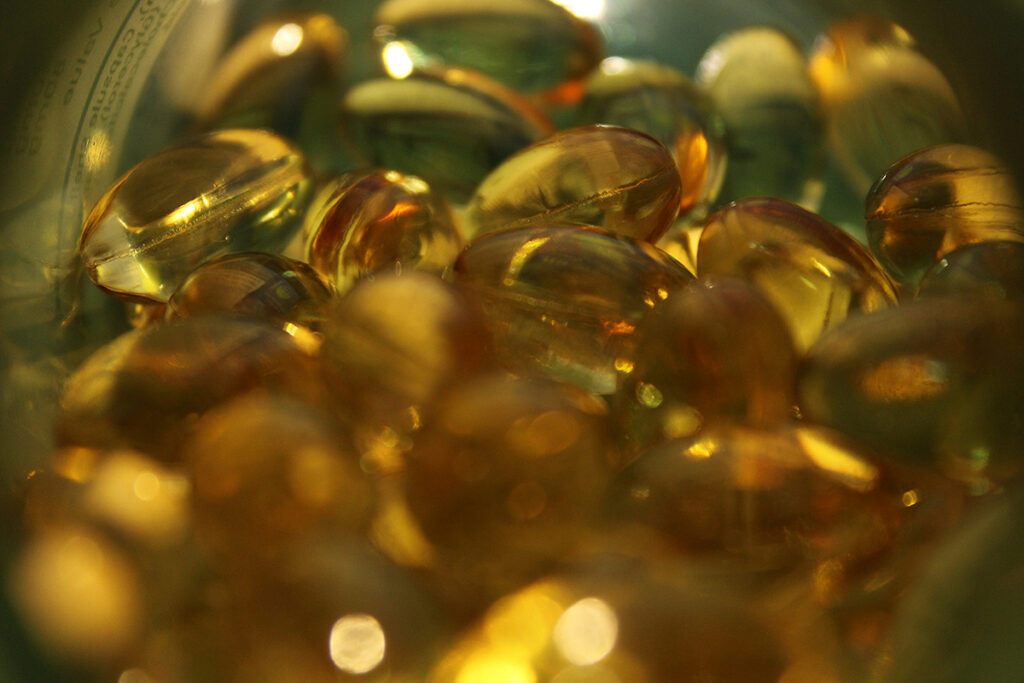Content
- Kidneys in the human body
- Loss of kidney function
- Features of kidney aging
- Acute renal failure (ARF)
- Chronic kidney disease (CKD)
- Kidney aging risk-increasing factors
- Prevention of kidney aging
- Conclusions
- Reference
The kidneys are the organ most susceptible to aging. Life expectancy depends on the condition of the kidneys. Therefore, early detection of kidney disorders is critical for survival. However, even more important is to prevent age-related changes in the kidneys. While resveratrol and renin-angiotensin-aldosterone system blockers can mitigate kidney aging, diet and exercise are the most effective ways to keep kidneys healthy.
Kidneys in The Human Body
The critical role of the kidneys is to remove waste products and excess fluid from the body. Every minute, the kidneys filter 800-1200 ml of blood, forming about 1.5 liters of urine.
The kidneys are responsible for maintaining fluid and electrolyte balance and blood pressure. In addition, the kidneys secrete the hormones erythropoietin, renin, and calcitriol, which regulate red blood cell levels, blood pressure, and calcium metabolism.
Loss of Kidney Function
Long-term oxidative stress and aging can reduce kidney function by disrupting the body’s metabolism. Kidney aging manifests as a decrease in the number of nephrons and the glomerular filtration rate. Comorbidities such as hypertension, diabetes, and obesity can accelerate kidney aging and lead to chronic kidney disease, one of the leading causes of death worldwide.
Glomerular filtration rate (GFR) is an indicator for early diagnosis of chronic renal failure. In healthy adults, GFR declines after age 30. The average annual decrease in GFR is 0.4-2.6 ml/min/year. By the age of 90, GFR is reduced by 46%.
Possible reasons for a decrease in glomerular filtration rate:
- sclerosis and atrophy of the glomeruli in the process of aging;
- changes in renal hemodynamics;
- Decreased protein intake, which is common in the elderly.
Features of Kidney Aging
From 40 to 80 years, the weight of the kidneys decreases by 10-30%. The total volume of the kidneys decreases by about 16 cm3 per decade, and most of the decrease occurs after 60 years of age.
In the elderly, the volume of the cortical substance of the kidneys, which is responsible for filtering blood and forming urine, decreases. The volume of the parenchyma of the kidneys also decreases, which is compensated by an increase in the volume of adipose tissue in the renal sinuses. Excess fatty tissue in the renal sinuses may be a risk factor for arterial hypertension.
Kidney aging is associated with nephrosclerosis, the replacement of the kidney parenchyma with connective tissue, which leads to loss of kidney function. Nephrosclerosis is especially common in patients with hypertension but also occurs in healthy people. The prevalence of nephrosclerosis increases linearly from 2.7% in healthy adults aged 18-29 to 73% in those aged 70-77.
Acute Renal Failure (ARF)
Older people are at risk for AKI due to decreased nephron count and GFR. In aging kidneys, the reabsorption of phosphate, glucose, and sodium, as well as the ability to concentrate and dilute urine, are impaired. Inadequate fluid intake, diarrhea, or vomiting leading to dehydration, combined with electrolyte disturbances, can lead to acute renal failure.
The elderly are more likely to need dialysis for AKI. Moreover, the elderly are less likely to recover from AKI, so their disease is more likely to progress to chronic kidney disease.
Chronic Kidney Disease (CKD)
CKD occurs in the aging body due to a progressive decline in GFR and albuminuria.
The diagnosis of CKD is made if the patient has an estimated glomerular filtration rate of less than 60 ml/min/1.73 m2 for 3 months or longer, even without evidence of kidney damage.
In CKD, the water and electrolyte balance is disturbed, which leads to water retention in the body and an increase in potassium concentration in the blood, which can disrupt the functioning of the heart, lungs, and brain. In addition, the excretion of metabolic products is disturbed, and uremic toxins and drug metabolites accumulate in the body.
CKD also leads to vitamin D3 deficiency and increased blood phosphate levels. Vitamin D3 affects calcium metabolism. Suppose there is little calcium in the blood, the activity of the parathyroid glands increases. Therefore, impaired renal function can lead to secondary hyperparathyroidism and complications such as osteoporosis and disrupting the gastrointestinal tract, nervous system, and heart.
In CKD, the metabolism of sex hormones is disrupted. Therefore, CKD can lead to amenorrhea and impotence.
However, older people over 65 with moderate or advanced CKD have a lower risk of end-stage CKD than younger people.
Kidney Aging Risk-Increasing Factors
Male gender
Estrogens protect kidney function in the elderly, while androgens have the opposite effect. Therefore, in men, renal failure progresses faster than in women. In addition, the gradual decline in testosterone levels observed in the elderly may contribute to the development of age-related changes in the kidneys.
Cardiovascular disease (CVD)
Age-related decline in kidney function is more pronounced in the elderly with CVD. People with cardiovascular disease have progressive atherosclerosis, which also affects the vessels of the kidneys. Atherosclerosis disrupts normal renal blood flow, reducing renal function faster than physiological nephrosclerosis. Decreased renal blood flow due to systemic atherosclerosis can lead to renal microinfarcts and scarring of the kidney tissue. The scar is a connective tissue that cannot perform renal functions. Therefore, impaired renal blood flow and a progressive decrease in the number of nephrons lead to a decline in glomerular filtration, accelerated kidney aging, and CKD.
Hypertension
Hypertension is one of the most common chronic diseases. Hypertension occurs in 29-45% of the adult population and 75% of people over 65.
Elevated systolic blood pressure is a risk factor for decreased kidney function in the elderly. Chronic arterial hypertension, combined with atherosclerosis, age, or smoking, can impair kidney function, accelerating aging and leading to kidney failure. Lowering systolic blood pressure in people over 65 years of age may reduce the risk of kidney damage.
Smoking
Long-term smoking damages large and small vessels and is associated with clinically significant kidney changes in the elderly. These changes can accelerate kidney aging.
Smokers develop hyperfiltration – the glomerular filtration rate increases and proteinuria is observed. These factors can lead to kidney damage and further CKD. In addition, smoking accelerates the progression of CKD in patients diagnosed with impaired renal function.
Smoking cessation may reduce the incidence of kidney failure in the elderly. Smoking cessation lowers blood pressure, heart rate, and urinary protein levels in diabetics, which slows the progression of CKD.
High body mass index
Obesity increases blood pressure and is one of the leading causes of cardiovascular diseases and kidney diseases. In obese patients, renal plasma flow, fractional filtration increase, and proteinuria are more often observed – the longer and more obese, the greater the risk of kidney dysfunction.
Elevated body mass index (BMI>25) is a risk factor for reduced GFR and death in people with average or reduced glomerular filtration rates. You can calculate BMI using the formula:
BMI = body weight in kilograms / (height in meters)2
With obesity, sclerosis can develop in individual nephrons, increasing the risk of development and progression of renal failure. Obese people are twice as likely to develop CKD than physically active people. In addition, a high BMI is a risk factor for kidney stones and kidney cancer.
However, obesity does not increase the risk of end-stage renal disease in patients with moderate to advanced CKD.
Insulin resistance and diabetes
Insulin resistance is associated with CKD, rapid decline in kidney function, and aging. Impaired insulin sensitivity, characteristic of the metabolic syndrome, leads to changes in the metabolism of glucose in the kidney cells and increases the risk of developing CKD.
Diabetes is also a risk factor for kidney dysfunction and accelerated aging. Renal aging in diabetics is associated with oxidative stress, inflammation, and hypertension. Patients with diabetes have a higher baseline GFR but a more rapid decline in GFR with age.
In diabetes and prediabetes, the albumin-creatinine ratio (ACR>30mg/g) is elevated and is used to diagnose and assess the progression of CKD. However, GFR does not change significantly in prediabetes. The reason is that glomerular filtration is only partially impaired in prediabetes without affecting kidney function.
The antidiabetic drug empagliflozin slows the progression of CKD in patients with type 2 diabetes.
High protein intake
High protein intake can cause an increase in blood pressure in the glomerular capillaries, which can lead to glomerular damage and proteinuria. These changes can lead to hyperfiltration of the kidneys, progressive nephrosclerosis, and age-related decline in renal function.
The source and quality of the protein are essential. A high intake of red meat increases the risk of developing CKD, but fruit and vegetable proteins protect the kidneys. The risk of developing CKD from consuming poultry meat and dairy products is negligible.
Prevention of Kidney Aging
Diet and probiotics
Kidney aging accelerates inflammation. Increases inflammation of intestinal dysbiosis, which is associated not only with kidney dysfunction but also with diabetes, colorectal cancer, inflammatory bowel disease, and even autism and Parkinson’s disease.
Gut microbiota is dependent on diet. The Mediterranean diet has an anti-inflammatory effect by increasing the intestinal bacteria Bacteroides and Clostridium and decreasing the numbers of Proteobacteria and Bacillaceae. A high intake of plant foods also improves the composition of the gut microbiota, while fiber intake mitigates systemic inflammation.
Probiotics can inhibit the growth of pathogenic bacteria. However, caution should be exercised when prescribing probiotics for CKD. A study in patients with CKD showed that probiotics could not reduce uremic toxins and inflammatory markers levels.
High physical activity affects the bacterial diversity and abundance of Firmicutes, Bacteroidetes, and Proteobacteria and increases the concentration of short-chain fatty acids.
The consumption of vegetables and fruits is associated with increased telomere length. Telomeres are molecules at the ends of chromosomes that protect DNA from damage. Telomere shortening is associated with aging, cardiovascular disease, type 2 diabetes, and CKD. The Ornish diet, a low-fat, plant-based diet, increased telomerase activity in men with prostate cancer.
The Mediterranean diet is low-phosphate, limiting red meat and dairy products. A low phosphate diet is helpful in Klotho gene deficiency. Klotho deficiency accelerates aging and progressive decline in kidney function. Klotho is mainly expressed in the cells of the distal tubules of the kidneys. It regulates the excretion of phosphates and, most importantly, has a rejuvenating effect. Overexpression of Klotho increases lifespan in mice by 20-30%. A low phosphate diet alleviates kidney dysfunction and aging.
The FGF23 protein is also responsible for the excretion of phosphates. Elevated levels of FGF23 are associated with higher mortality in patients with CKD. A Western diet high in phosphate increases FGF23 levels and decreases Klotho levels. Keto acid supplementation on a low protein diet maintains serum levels of FGF23 and Klotho. However, the absence of this supplement on a low-protein diet leads to an increase in phosphate levels and a decrease in Klotho levels.
Calorie restriction
Calorie restriction slows age-related renal fibrosis. In rats subjected to lifelong calorie restriction, life expectancy increased markedly. However, long-term calorie restriction is unattainable for a person, as it can interfere with an active lifestyle. Short-term calorie restriction lowers blood urea nitrogen, creatinine, and uric acid and lowers blood pressure.
Calorie restriction stimulates autophagy. Autophagy is the process by which cells engulf and destroy damaged proteins and organelles. Autophagy protects the kidneys from inflammatory disorders that are associated with aging. Impaired autophagy leads to the accumulation of damaged cells in the body and aging and is also related to glomerular sclerosis and ischemia-reperfusion syndrome. However, too intense and crude stimulation of autophagy contributes to kidney damage.
The effect of resveratrol on kidney aging
Resveratrol is a compound found in red grapes. Resveratrol has antioxidant and anti-aging effects. When combined with exercise, resveratrol reversed the aging process in mice. Resveratrol has proven effective against acute kidney failure in humans by inhibiting the formation of reactive oxygen species.
The dosage of resveratrol plays a key role. At a lower dose, resveratrol can be beneficial in maintaining a person’s health. However, higher doses promote cell death. Although high doses of resveratrol are dangerous for healthy cells, they can be used in anti-cancer treatments.
Conclusions
Kidney aging affects all components of the kidney and leads to kidney failure. The main changes in aging kidneys are a decrease in the mass of the kidneys and the volume of the renal parenchyma, with its further calcification, atherosclerotic narrowing of the renal arteries, thinning of the renal cortex, and nephrosclerosis. The glomerular filtration rate also decreases with aging.
Comorbidities and lifestyle can accelerate kidney aging. Risk factors include cardiovascular disease, hypertension, diabetes, smoking, obesity, and high protein intake.
The following are effective for preventing kidney aging: the Mediterranean diet, meat consumption restriction, and general calories. Resveratrol can also have a rejuvenating effect on the kidneys. However, resveratrol has a low bioavailability, and further research is needed to determine the safe dosage of resveratrol.
Useful article, necessary information? Share it!
Someone will also find it useful and necessary:
Reference
Structural and Functional Changes in Aging Kidneys



